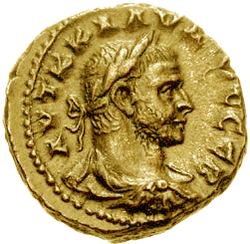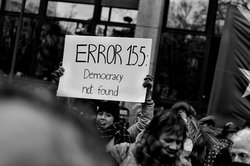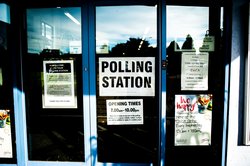Can Smart Ledgers Lead To Smarter Social Decisions?
Thursday, 01 November 2018By Michael Mainelli
This article is an extract from Agenda For The Future, Chapter 18, Derek Bates (ed), Reflective Productions LLP (2017), ISBN:978-0-9560040-4-8, pages 225-237.
“You know, comrades,” says Stalin, “that I think in regard to this: I consider it completely unimportant who in the party will vote, or how; but what is extraordinarily important is this — who will count the votes, and how.” Boris Bazhanov, Memoirs of Stalin's Former Secretary, 1992
Overview
If you want to change the system, change the system. Under the many pressures facing society, such as globalisation, immigration, inequality, or pollution, people are exploring how changing monetary and voting systems might help make better social decisions. At the same time, technology is dramatically lowering the obstacles to implementing Smart Ledgers that would enable these decisions to be automated and separated from power structures. Some proposed uses of Smart Ledgers could make a material difference to the way we organise money, democracy, and society.
Ledger De Mania

Ledgers have always been at the core of civilisation. A ledger is a book, file, or other record of transactions. The Sumerians used clay cuneiform tablets to record transactions. Later we had papyri. Medieval folk split tally sticks. In England, when tally sticks were retired in 1834, the destruction of so many tallies got out of control and burned down the Houses of Parliament. Today, the implementation of choice for a ledger is a database, found in all modern accounting systems.
When many parties interact and need to keep track of complex sets of transactions they have traditionally found a central ledger helpful. A central ledger needs a central third party who makes the entries (validates); prevents double counting or double spending (safeguards); and holds the transaction histories (preserves). Centralised ledgers are found in registries (land, shipping, tax), exchanges (stocks, bonds), or libraries (index and borrowing records), and so on, coincidentally wherever society makes collective decisions.
Smart Ledgers, a combination of blockchains and code, are the ‘next big thing’ in technology. Smart Ledgers are multi-organisational, intelligent databases with a super audit trail. We can place pieces of computer code in the databases to wake up and execute contracts automatically, without human intervention. A simple example of a smart contract might be some code that pays $50,000 on every day in July when the temperature recorded by a given field on the Met Office website is above 33 °C. Another might be some code that releases data recorded today some 90 days hence. Another might hand my opportunity to vote to you. Smart Ledgers have been around for years but people have gained confidence in their operation due to the fame, or notoriety, from their use since 2009 in cryptocurrencies such as Bitcoin and Ethererum. Smart Ledgers are particularly suited to identity, document, and agreement exchange (IDAX). IDAX may be their ‘killer app’.
Where’s The Central Third Party?

Smart Ledgers are a technology for fair play in a globalised world. Three characteristics enhance fairness. First, most Smart Ledgers have no centre. This means fair play for everyone regardless of their location. Second, because the records are distributed and immutable, they are physically robust and designed for cybersecurity. Third, ‘mutual’ means held in common or owned by no one. Nobody has to be in charge of a Smart Ledger. They can operate semi-autonomously with a much-reduced central third party.
The central third party approach, while scarcely bettered over millennia of civilisation, think back to at least the Sumerians and cuneiform temple records, has its problems. The two biggest problems are corruption and monopoly. Corruption is an ever-present danger. Any central registry becomes a target for cheating and the controllers of the ledger are an obvious weakness. The officials, public or private, are susceptible to bribery or other inducements to collude with cheaters. This is often seen as a third-world problem, but the global traded markets have seen corruption in LIBOR and foreign exchange markets ‘fixing’ certain important pricing benchmarks through central functions.
Any successful registry or exchange is also susceptible to becoming a natural monopoly. Some natural monopolies are enforced, often for good reason, e.g. there is only one land registry in our country to reduce disputes from competing ledgers. Some natural monopolies evolve from success, a particularly popular financial exchange. Natural monopolies can easily lead to a propensity to be indolent or overcharge, or both.
Smart Ledgers challenge central third party monopolies. At the very least safeguarding and preservation of the ledger move into the technology. Validation choices range from keeping a central third party but removing their ownership of the data, to algorithmic consensus, to existence verification, to unanimous consensus, and more.
Ledgers For Debts
Money and democracy often clash. To understand the excitement over Smart Ledgers and cryptocurrencies, we need to understand money. To understand money, we need to understand communities. An anthropologist might say that communities form when people are indebted to one another. Small communities tend to hold everything in common. They are completely and mutually indebted. Slightly larger communities need other mechanisms to record indebtedness.
If your community is large and your forms of indebtedness more complex, you might trade indebtedness. You give my indebtedness to someone else to repay one of your debts. He or she claims from me instead of you. In larger communities this indebtedness can be complex and heterogeneous. We use money to trade indebtedness of chickens for indebtedness of shoes, help with house-building, or favours owed. Money is a technology that communities use to trade debts across space and time. The ultimate backing of money is its ability to extinguish debts in future. The depth and distribution of debt obligations are what give money value.

Nations have a monopoly on the use of force in a geographical area. To be a nation, you must defend the integrity of your national boundary. This allows you to impose taxation within your borders. By forcing citizens to meet taxation obligations, governments create an incentive, a need, for them to trade. We trade our tax debts with each other. Governments create and vary the supply of their currencies – fiat currencies – so setting the trading landscape within their borders.
Is a nation a community? Governments back their currencies through their monopoly of force on tax payment, creating a semi-coerced community of taxpayers. If you don’t believe there is coercion, call your tax office and say you’d like to stop paying your taxes for a bit. You’ll soon see community power in action. The money in our pockets is valuable because people with whom we wish to trade need to extinguish tax debts, which will be enforced, or know people with tax debts looming. Our monetary ledgers are mostly electronic databases in financial institutions, though you can see a form of distributed ledger in our banknotes with their serial numbers.
Ledgers For Votes
Democracy and money often clash. To understand the excitement over Smart Ledgers and cryptocurrencies, we need to understand democracy. Democracy is rule of the people by the people. Typically, the will of a majority of eligible voters is exercised by elected representatives. There is a ledger, or registry, of voters that limits voters to a single vote.

As with money, votes are traded for policies, and sometimes for favours. The value of voting varies. Mature democracies seem to have difficulty, overall, in getting citizens to vote without coercion such as mandatory voting. Some believe reductions in voter turnout are due to ‘free rider’ problems. As long as enough people turn out to vote, why should I? What difference will my additional vote make?
Others wonder if the value in voting has decreased. Are elected representatives in a gridlock with institutions and thus voters find voting of little value, anticipating little change whatever they vote? Frustration with economic change and powerless economic institutions often breeds left-wing populism. Frustration with cultural insecurity and elites powerless to help bind communities together often breeds right-wing populism.
Community Clashes
Social debts and monetary debts are uncomfortable partners. We feel queasy when we hear of jails where some prisoners can buy more space, better food, even entertainment. Economist Dan Ariely amusingly describes an imaginary trust-rending scene, offering your mother-in-law three hundred dollars, no four hundred dollars, in appreciation of a wonderful family meal. He points out that social and market norms conflict. We live in two worlds simultaneously, the social world and the market world. A simple solution is to keep the two separate. But this is often not possible.
Michael Sandel describes some awkward social-money clashes in his book, What Money Can’t Buy: The Moral Limits Of Markets [Allen Lane, 2012]. For example, Wolfenschiessen, Switzerland residents were surveyed about whether they would accept having a nuclear waste repository in their community. 51% per cent said ‘yes’. When an annual financial payment was offered, support plummeted to 25% even when the annual payment was raised as high as the village’s median monthly income.
If money is based on communities, voting is based on communities, and social communities track debts, perhaps what we’re seeing is the difficulty of translating one currency into another across different ledgers. A goods economy conflicts with a gift economy. How much is a great holiday meal worth in pounds? Yet the meal does have a social gift value and we do trade when we say ‘our place next year’. We circle round, “what’s the point of happiness; happiness can’t buy you money – versus – what’s the point of money; money can’t buy you happiness.”
One Person, One Vote?
Simple voting mechanisms seem unable to address the increasing number of interlinked challenges facing society, e.g. how to increase growth yet reduce environmental harm. Complex decisions do not necessarily fall into yes-no answers. Further, the apparent powerlessness of governments and institutions to demonstrate forward motion elicits apathy and low voter turnout. Might changing voting systems make a difference?

Voting systems have long posed intellectual challenges. Voting system variations often involve discussion of thresholds, such as minimum participation levels or minimum percentage agreement required for change. Other variations include weighting or sequencing votes. The 13th century philosopher, Ramon Llull is credited with early versions of the Borda count and Condorcet criterion, independently proposed centuries later. Charles Dodgson, better known as Lewis Carroll, explored improvements to the Condorcet method.
A good example of sequencing is trying to achieve proportional representation in multi-seat constituencies. Single transferable voting (STV) is used by a number of countries. A voter has a single vote that is initially allocated to their most preferred candidate. As vote counting proceeds, and candidates are elected or eliminated, unused votes are transferred to other candidates according to the voter's stated preferences, in proportion to any surplus or discarded votes.
Liquid Democracy
A more radical thought stems from allowing voting rights to be transferred. One voter can freely transfer their right to vote to another. This basic idea is not new. It would be easy at a small board meeting to defer and say something like, “my vote goes whichever way Jane’s goes”. What is new is the idea of trying to handle large numbers of transferable votes.
Pirate parties in Germany, Iceland, and Sweden, are trying to apply delegative democracy under the rubric of ‘Liquid Democracy’. Liquid Democracy tries to decide most issues by direct referendum. However, rather than engaging everyone, many of whom have neither the time nor the ability, the system permits people to transfer their voting rights on each referendum to whomever they desire, hopefully people with the time and the ability to make a specific referendum decision well. In turn, these voting rights can be transferred onwards still until they are executed and a decision is made.
Liquid Democracy addresses the fact that individuals cannot learn about every issue. Potentially, it provides experts with more weight. There are many options, for example with or without secret ballots, setting a limited number of transfers, allowing or not allowing people to sell their votes. Liquid Democracy suffers, as does much direct (as opposed to representative) democracy with potential conflicts among referenda, for example an environmental referendum that clashes with an economic growth decision.
However, technology makes much easier the deployment of transferable voting rights themselves. Historically, such systems would have been complicated to administer and more exposed to fraud. Smart Ledgers permit the deployment of widespread transferable voting systems without a central third party.
Liquid Capitalism
Significant portions of financial markets, particularly equities, are controlled by institutional investors. Institutional investors are entities that pool money to purchase securities, property, and other investment assets, or to make loans. In certain capacities, banks, insurance companies, pensions, hedge funds, investment advisors, endowments, and mutual funds, are institutional investors, holding shares on behalf of a third party. Estimates vary, but a significant proportion of the stock markets are controlled by institutional investors, perhaps up to half.
But these are not investors so much as ‘agents’. Institutional agents should look to ways for the parties they represent to exercise their votes, e.g. pass-through or active use of proxy votes. It is very difficult to get institutional investors to vote their shares for a variety of reasons, such as lack of self-interest, conflicts among the people they represent, or the cost of administering proxy votes.
Every company in the UK must have both a memorandum of association and articles of association. The memorandum of association sets up the company and the articles of association set out how the company is run, governed and owned. Companies that believe in shareholder democracy can easily alter their memorandum and articles of incorporation to permit transferable votes. These votes would be given to all shareholders. The institutional agents can then pass these votes on in proportion to, for example, the holding of various retail investors.
One can imagine that for contentious situations activists, be they corporate or NGOs, might lobby to be given votes on the basis of their expert knowledge or to increase their impact. Retail investors might happily pass these on. Retail investors might even be paid for their votes, currently wasted in the present regime. Smart Ledgers could provide significantly better corporate governance as institutional agents (pension funds) distribute voting rights to the ultimate beneficiaries (pensioners) to hold corporate management to account. There are several announcements by large exchange groups that they are exploring the feasibility of transferable share voting using Smart Ledgers.
Speak Post-Truth To Power
Looking further ahead, we can imagine Smart Ledgers providing systems such as a favourite thought experiment of mine, ‘continuous voting’. In continuous voting, opportunities to vote are distributed regularly to voters, say one vote per month. However the vote has a reasonably lengthy period of validity, perhaps from one year to infinity. Voters can save votes for the future. If politicians need to be kept on a tight leash, voters keep the government and the opposition close. If a politician needs a ‘mandate’ for change, voters can release votes that provide sufficient confidence to get on with the job and demonstrate that they have too little in reserve to counter him or her for a while. If a politician needs to be turned out rapidly, after scandal perhaps, unused votes can come in at once and replace the politician with the opposition without a general election.

Smart Ledgers inspire innovation, but caution is required. The ability to change voting and monetary systems so easily is a two-edged sword. For example, continuous voting easily becomes inordinately complex. Are the votes weighted by time since issue, or do larger blocks get more or less weight, etc.? Equally, we can be too creative about money as tax credits. You could have a higher tax as you got closer to city centres. Imagine airport and hotel taxes changing daily, or hourly. Governments would be constantly changing taxation systems because the technology makes it frightfully easy to do whatever they want, right now.
Stick It To Us
‘Wicked problems’ is a phrase popularized in the 1970s to describe messy, circular, and aggressive problems, such as trying to run a business. According to Laurence J Peter of The Peter Principle fame, “Some problems are so complex that you have to be highly intelligent and well informed just to be undecided about them.” On our shrinking planet, more and more people need to make more important and longer term decisions on ‘wicked problems’ such as the environment, poverty, inequality, finance, pensions, forestry, over-fishing, over-population or energy. Many of these decisions are not amenable to yes/no voting. First, we have to agree that something is an issue, then we need to assess, rate, provide options, decide, allocate resources, implement, and evaluate. Then, we have to iterate this process.
In some cases, perhaps too much sensitivity to the current group norm is the problem. We’re very good at making decisions. We can make a new one every day. Our problem is we can’t stick to them. We need leaders who point ahead through challenging paths and then make long-term decisions that stick.
A common line about Benito Mussolini was that he “made the trains run on time” (a propaganda snippet promulgated by Il Duce). This line is often followed by a plea for some short-term tyranny. The Asian model of single party governance, such as China’s, has become an appealing idea for a few commentators in the West, envious of the single party’s freedom to engineer major socio-economic changes. We may admire tyrants when they do good, but the reason is often that they are consistent and stick to a long-term plan when a populace might be more prone to prevaricate.
While today’s ministers can change their minds from news programme to news programme, invoking tyranny is hardly appealing and there are far more numerous cases where democratic institutions have delivered long-term solutions for complex health, education, transport, communications and other problems. Further, many long-term decisions are long-term mistakes. We need ways of changing decisions as we learn, just not capriciously.
What We Have Here Is A Failure To Determinate
There are inklings of Goldilocks approaches, neither too much nor too little revision to past decisions. An interesting lesson can be inferred by contrasting the development of Microsoft’s operating systems and Linux. In the case of Microsoft, a traditional corporate command-and-control structure has, at great expense, created a mediocre operating system. In the case of Linux, a group of unpaid, amorphous volunteers have created the operating system which powers the majority of the internet, especially its most vital functions. But how do they do it? Anthropologists have much to teach us about how a culture of volunteers can make better big, long-term decisions about systems architecture and security than an extremely well-funded corporation. Is shareware a special case, or are there larger lessons to learn?
Another way make group decisions ‘stick’ but still retain the capacity to adapt to change is to put ‘money on the table’. Policy performance bonds would extend the idea of interest linked bonds to other government targets. These bonds would pay more when a government fails to achieve its targets, such as alternative energy use, carbon emissions, or educational attainment. People can change previous decisions, but at a cost in paying increased interests on government debt. Such debt would be a natural hedge for those people who acted on the government policy when it was announced. They would be compensated for their historic policy support when radical policy changes occur.
The Enlightenment brought forth a vast improvement in the quality of human life based on the scientific method. Our traditional tools for making widespread social decisions have been either money or democracy, paying or voting. We stand at the threshold of a wave of social development based on Smart Ledgers that could reshape human social existence. If the First Enlightenment was about science - “how we know what we know”, then our Second Enlightenment might be about decisions - “how do we decide what we want to do”, and stick to it.
“Democracies based on single-issue NGOs and opportunistic electoral machines are weak democracies. And they are proliferating… Almost everything we do has been transformed by new technologies and organisations. Everything, that is, except the way we govern ourselves.” Moises Naim, “If I Ruled The World”, Prospect, May 2013, page 6
About the author
Professor Michael Mainelli, Executive Chairman, Z/Yen Group, is a qualified accountant, securities professional, computer specialist, and management consultant, educated at Harvard University and Trinity College Dublin, Michael gained his PhD at London School of Economics where he was also a Visiting Professor. He co-founded Z/Yen in 1994, the City of London’s leading think-tank, to promote societal advance through better finance and technology. Michael’s latest book, The Price of Fish: A New Approach to Wicked Economics and Better Decisions, written with Ian Harris, won the 2012 Independent Publisher Book Awards Finance, Investment & Economics Gold Prize.